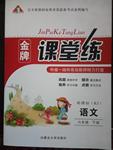��Ŀ����
����Ŀ��������������һ��������ɫ���е�ѧ������ϯ���������У����ͬѧҪȥ�Ĵ����Dzμ�Ϊ�����ܵĹ��ʽ������������Ӣ��Ϊ�ûר��дһ��֪ͨ����֪ͬѧ��һЩע��������ݰ�����
1. ����û���(passport)��Ǯ����
2. ��Ҫ����������
3. ����ϴ�·��ͳ���ҩƷ��
4. ע��������ò��ά�����������
ע�⣺1. ����120���ң���ͷ�ͽ�β�Ѹ��������������ܴ�������2. �����ʵ�����ϸ�ڣ���ʹ�������ᡣ
Dear friends,
_____________________________________________________________________
_____________________________________________________________________
_____________________________________________________________________
Yours,
Li Hua
���𰸡�
Dear friends,
I��d like to offer some tips to those students who will go abroad so that you can avoid trouble and make your trip pleasant.
First of all, you should take good care of your passports and wallets, without which you could do nothing in a strange land. Secondly, you should never go out alone to avoid getting lost. Thirdly, it is necessary to take some clothes and medicine in case the weather changes and you might fall ill. In addition, you should mind your behavior wherever you go and whatever you do because you represent the Chinese people. You should behave properly and establish a good image.
If you follow my advice, I am sure you will enjoy your trip.
��������
�����������������֪ͨ�����£�������ʾ��Ϣд��ʱע�����¼��㣺1����ϸ�Ķ��й���ʾ��Ū�������ṩ��������Ϣ����ȷ����ЩҪ�㡣2����������µ������ܣ�Ҫ����ٵķ�Χ�ڽ��з�������˼������Ҫ������ʾ�龰��������һ������ϵ��д��3������Ҫ���������ȷ�����ӵ�ʱ̬����̬���ͱ��Ķ���Ӧ����һ������ʱ̬�� 4.ע��ʹ�ø��ʻ�;�ʽ�����������µ����㡣
������˵�������Ľṹ���գ���η�������������First of all��Secondly��Thirdly��In addition��ʾ˳��Ĵʣ�ʹ�����������������һЩ��ʽ�������¿�ͷI��d like to offer some tips to those students who will go abroad so that you can avoid trouble and make your trip pleasant.��仰����I��d like to�ľ��ͣ�����Ӿ��so that�������������⣬���»�ʹ���˴����������take good care of��avoid dong sth.,in case�ȡ�

 ���ƿ�����ϵ�д�
���ƿ�����ϵ�д� ���¿쳵����������ϵ�д�
���¿쳵����������ϵ�д�